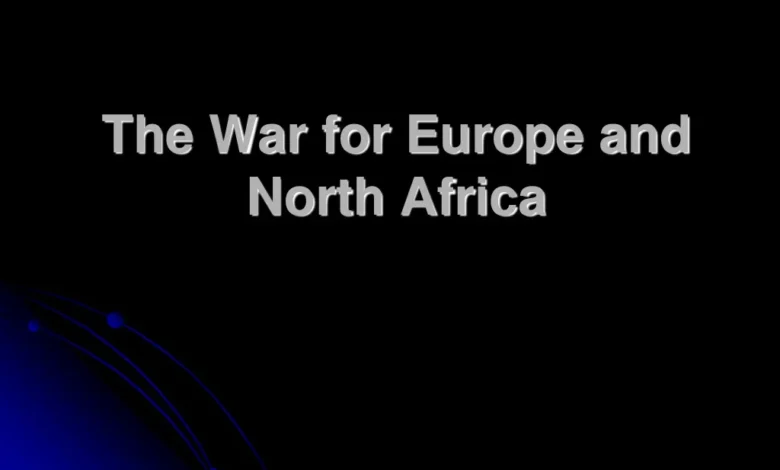What are the repercussions of Europe’s armament on North Africa? By Hussein Majdoubi
Translated from Arabic by Ibrahim Ebeid. April 6,,2025

What are the repercussions of Europe’s armament on North Africa?
By Hussein Majdoubi
Translated from Arabic by Ibrahim Ebeid.
April 6,,2025
The independence of the European military decision vis-à-vis the
The United States is welcomed by China, Russia, and other countries, and the Arab world. What should not be forgotten is that this military development is not only a wall against Russia, but also a deterrent force, and the potential for harassment force towards the southern shore of the Mediterranean in times of crisis.
The world is watching with great interest the relationship between the European Union and the United States at the military level, after it became clear that the new administration in the White House wants to establish strong relations with Russia, including persuading Ukraine to abandon the east of the country (Donbas region) in favor of Moscow and then withdrawing the military umbrella for Europe. Thus, we follow how European countries are actively striving, through intensive conferences and visits, to agree on military spending, funding military research, and consolidating war assets to be a coordinated force.
The European military discourse focuses on the fact that this strategy is directed to achieve two goals, the first is to remain in the adult club alongside China, Russia, the United States, and perhaps India tomorrow, and then to deter the Kremlin in the future from any military adventure towards Eastern European countries, as happened with Ukraine. This war broke out in February 2022 and continues to this day. History reveals to us how the course of events changes to end up in an unexpected situation, or sufficient data has not been brought to understand or predict what may happen in the future, in addition to this, the illusion that the situation will not change, but rather that it will continue as it is, and this is one of the worst things that some peoples and regimes, including Arab ones, believe in until the crisis and disaster occur. Besides Russia, which now appears to be at the forefront as the target of EU military policy, the fact that Europe’s transformation into a greater military power than it is now means a worsening military rift in its favor with the Arab world, especially in the Mediterranean. It is possible to recall a fact that may become self-evident and taken for granted, namely, the West’s endeavor, especially Europe, to prevent its southern belt, i.e. Islamic-Arab, from being stable and militarily strong. We see how Spain expresses its concern about the dynamism of Morocco, and how France expresses the same position about Algeria’s armament. Yes, French and Spanish military superiority over North Africa continues, but deterrence has declined dramatically in recent years, in a way not seen in more than four centuries.
History reveals how the course of events changes to end in an unexpected situation, or not enough data has been brought up to understand or predict what might happen in the future.
By regaining more military power, the EU will restore significant military deterrence, especially in the countries of the South, and the hint of military force will be on the agenda during crises. Suffice it to recall what Spain did in July 2002 when it resorted to military deterrence against Morocco to regain the island of Thawra (also known as Leila) instead of dialogue. Let us recall how Europe sided with Spain in the migration crisis in Ceuta during May 2021, including the confirmation of the colonization of the two cities. Let us recall the NATO summit in Madrid in the summer of 2022, during which some parties, including Italy and Spain, hinted at the need for the alliance to intervene outside its borders, if energy supplies were compromised, and they mainly meant Libya and Algeria, a signal of a show of power inspired by colonial ideology that is no longer obsolete. Suppose that when European countries are ruled by conservative left, liberal, and right-wing parties, there is a kind of calm, with some soft roughness in international relations, but what would happen if Europe became at the mercy of the extreme nationalist right that considers the other to be worth nothing and believes only in power? In the name of white supremacist discourse, the transmission of civilization to the wild man (non-European man), the West justified the colonization of the nations of the South. One of the strangest ironies is that the translation of this discourse into a field-colonial action took place at a time when the European continent was witnessing a political, cultural, and philosophical development centered on the rights of the individual, peoples, and minorities that began with the European Renaissance.
This old and hateful vision, in our time, returns through the extreme right in different forms, does not hide its ugliness in-depth, and targets everything that is internationally shared. They view multilateral institutions as entities dominated by self-centered elites that threaten national sovereignty and traditional values. This view is directly at odds with the functioning of an international order based on cooperation and common standards, i.e., invoking military power in conflict resolution.
The rise in the shares of the far-right nationalists has a direct negative impact on the multilateral system, especially the United Nations. It poses an existential threat to international organizations. This was translated into the threat of force and assault on the other. This oath is now led by President Trump, and the US administration has not hesitated to offer control of the Gaza Strip and Greenland, annex Canada and pressure Ukraine to cede its eastern territory to Russia in flagrant violation of international law. In practice, it is difficult to repeat colonialism in its previous form, as it did during the nineteenth century, as many countries of the world have armies capable of organizing fierce resistance against the occupier. However, the future may hold surprises, including the ability to carve out areas of a particular country, if they are not fully controlled. This scenario is happening in Iraq, Syria, Yemen, Palestine and Ukraine. Major powers, especially with the far-right nationalist right, will be able to carve out parts of states. As long as the culture of the superiority of the Western-Christian man over other religions, cultures, and ethnicities continues, among a segment of Westerners, the threat of external aggression targeting the nations of the South will continue. Therefore, the European Union’s increase in armaments, which always sees the south as a threat due to terrorism, immigration, and the independence of control over national wealth, and then the possibility of the extreme nationalist right, which despises the role of international institutions and believes that interfering in the wealth of the other is a divine right, is among the worrying indicators in relations between the two shores of the Mediterranean, the Arab world and the European West. This is happening at a time when part of public opinion in Algeria and Morocco is still engaged in a media war.





